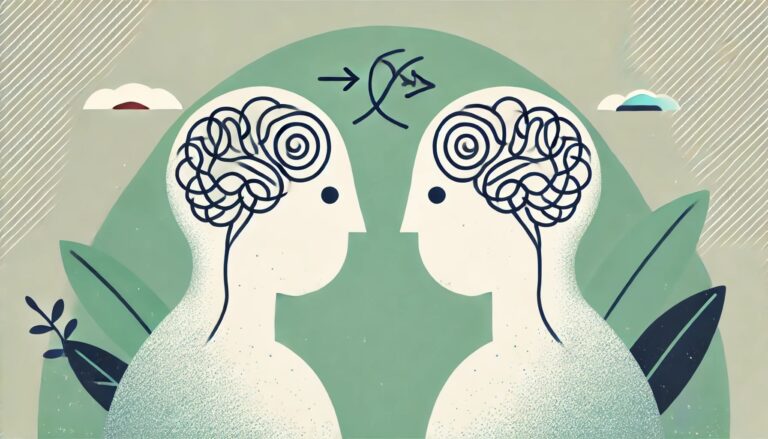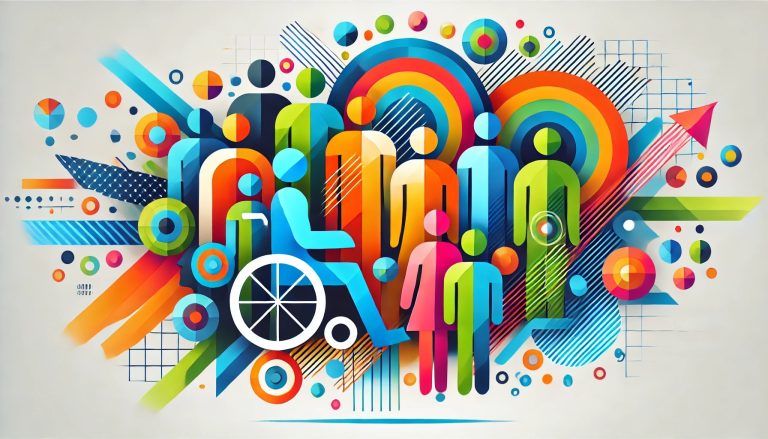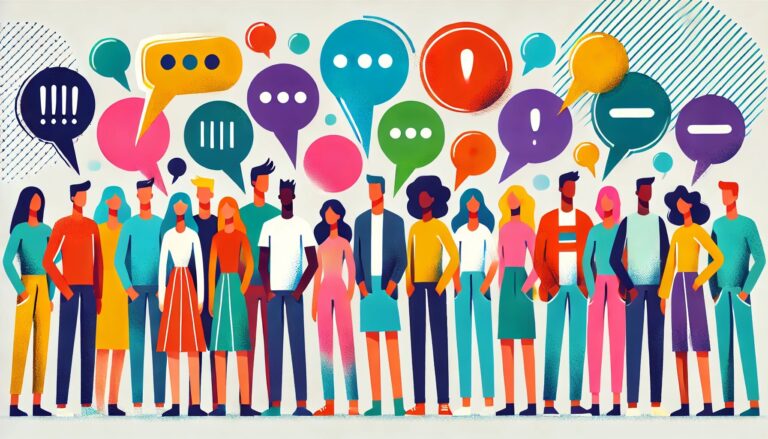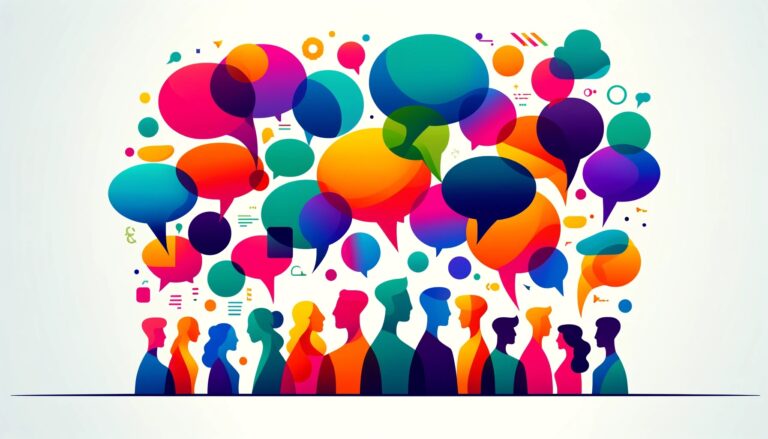
Why Is Inclusive Language Important?
Language constantly evolves, reflecting societal changes and shaping our world perceptions. It’s a powerful tool that can either connect or divide us.
Inclusive language plays a pivotal role in bridging divides, fostering unity, and promoting an environment of respect and understanding.
Suppose you are asking why inclusive language is essential. In that case, this guide explores the importance of inclusive language in various spheres of life, highlighting its benefits in society, addressing common challenges, and providing practical steps towards its implementation.
The Role of Inclusive Language in Society
Inclusive language is not just about our chosen words; it reflects our understanding and respect for diversity. It shapes our social interactions, community values, and professional environments. By embracing terms encompassing a broad spectrum of human experiences, we can cultivate spaces where everyone feels acknowledged and appreciated.
Promoting Equality and Diversity
Inclusive language is a foundation for building a fair and diverse society. It transcends the realm of simple word choice to embody a more profound commitment to recognizing and valuing the rich patchwork of human life. This commitment is manifested in efforts to use language that is not only respectful but also reflective of the diverse experiences and identities of people.
Acknowledging Diverse Identities
The intentional use of accessible language acknowledges the presence and importance of diverse identities within society. It involves recognizing various cultural, ethnic, gender, and sexual identities, among others, in our daily communication. Doing so validates individuals’ experiences and builds a more inclusive community.
Combatting Marginalization
Inclusive language is pivotal in combating implicit and explicit forms of marginalization. By carefully choosing words that do not alienate or exclude, we can challenge societal norms that have historically marginalized certain groups. This proactive approach in language use is a step towards dismantling systemic inequalities and fostering a culture of equity and respect.
Reducing Discrimination and Bias
Language is a powerful tool that shapes our perceptions and influences our behaviors. By adopting inclusive language, we can challenge and change discriminatory attitudes and biases often ingrained in society, such as using the extended masculine to include all genders.
Dismantling Stereotypes
The careful selection of inclusive terms helps dismantle stereotypes perpetuated through language. By avoiding words that reinforce harmful stereotypes, we can contribute to a shift in societal attitudes towards more open and accepting viewpoints. This change is crucial for creating an environment where everyone can thrive without the constraints of prejudiced perceptions.
Fostering Psychological Well-being
Inclusive language also has a significant impact on psychological well-being. When individuals feel seen and respected through language, it can enhance their sense of belonging and self-esteem. This positive psychological effect benefits individuals and contributes to a more cohesive and supportive community ethos.
Contributing to Societal Change
Inclusive language is essential in the transformative process of broader societal changes, as it encourages a shift from exclusionary practices to those that embrace and celebrate diversity. This transition is necessary for building societies that are equitable, just, and welcoming to all.
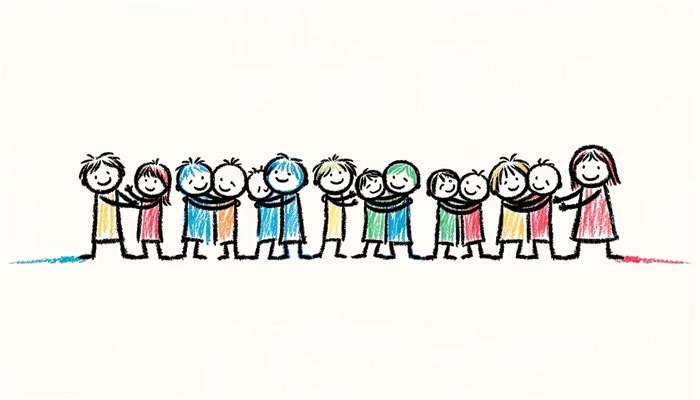
The Impact of Not Using Inclusive Language
The failure to employ inclusive language can have far-reaching consequences, affecting individuals and society. Not using accessible language can lead to exclusion, diminished mental health, and weakened societal cohesion.
Whether intentional or accidental, exclusionary language can profoundly affect individuals and groups, leading to feelings of isolation, invisibility, and marginalization.
An instance of exclusionary language includes the phrase “Stop being such a girl about it,” directed at someone who does not identify as female. This type of gender-specific language perpetuates false stereotypes about the roles and achievements accessible to men and women. A study has demonstrated a direct link between the use of gendered language and the reinforcement of traditional gender roles.
Similarly, complimenting someone Black by saying, “You have beautiful white teeth,” can also be exclusionary. This kind of language implicitly upholds racial biases by suggesting a standard that may not inclusively represent beauty across different races.
The terms “blacklisted” and “whitelisted” provide another example, with “blacklisted” denoting rejection and “whitelisted” indicating approval. In a society where individuals are often categorized as Black or white based on skin color, consistently associating “black” with negativity can subtly perpetuate racial biases, potentially disadvantaging Black individuals in professional and social contexts.
Last but not least, individuals facing mental health challenges also encounter difficulties with the negative implications of terms like “mental,” “crazy,” “OCD,” and “psycho” used carelessly in everyday language. Such descriptors can contribute to the stigmatization of mental health conditions, making it harder for those affected to seek support and understanding.
These are just a few examples of the profound impact of not using inclusive language, with significant implications for individuals, communities, and society.
Overcoming Challenges in Implementing Non-Discriminatory Language
The journey towards fully integrating inclusive language into all facets of society has its challenges. Resistance to change and the lack of awareness about the importance of inclusive language are significant barriers. However, by adopting effective strategies for education and encouragement, we can overcome these obstacles and foster a more inclusive environment for everyone.
Addressing Resistance to Change
Resistance to adopting inclusive language often stems from a lack of understanding of its importance or perceiving it as overly politically correct or burdensome. Overcoming this resistance requires a multifaceted approach:
Highlighting the Impact
One effective strategy highlights exclusive language’s real-world impact on individuals and communities. Sharing personal stories and research findings can help illustrate how language shapes perceptions, affects mental health, and influences societal cohesion. Making the consequences of exclusionary language tangible makes it possible to shift perspectives and foster empathy.
Promoting Open Dialogue
Encouraging open dialogue about non-exclusionary language and its challenges can also help address resistance. Creating safe spaces where individuals can express concerns, ask questions, and discuss the complexities of language use without fear of judgment can lead to greater understanding and acceptance.
Strategies for Educating and Encouraging Inclusive Language Use
Educating about and encouraging the use of inclusive language requires intentional and sustained efforts. Below are strategies that can be effective in promoting inclusivity:
Implementing Training Programs
Organizations and institutions can implement training programs designed to educate employees or members about the importance of inclusive language. These programs can cover the basics of inclusive language, provide examples of language to avoid, and offer practical tips for making more inclusive choices in communication.
Developing Resources
Creating and distributing resources such as guidelines, handbooks, and online materials can provide valuable support for individuals and organizations striving to use more inclusive language. These resources can serve as quick references and offer actionable advice for various situations.
Celebrating Inclusive Practices
Recognizing and celebrating effective non-discriminatory language use can be a powerful motivator. Highlighting success stories and acknowledging efforts to promote inclusivity can inspire others to follow suit and contribute to a culture that values and practices inclusive communication.
By addressing resistance through education and dialogue and by employing strategies to encourage inclusive language use, we can make significant strides toward creating a more inclusive and equitable society.
The Path to a More Inclusive World Through Language
The shift towards inclusive language is not just a linguistic trend but a reflection of a broader movement towards a more equitable and diverse society. By embracing and promoting inclusivity through our words, we can contribute to a world where everyone feels seen, heard, and valued.
Implementing non-discriminatory language is challenging, including resistance from those who view such changes as unnecessary or overly politically correct. However, overcoming this resistance is possible through education, empathy, and persistence. By providing resources, sharing insights, and demonstrating the positive impact of inclusive language on individuals and communities, we can begin to shift perceptions and encourage more inclusive communication practices.
Moreover, strategies for promoting non-discriminatory language should involve active engagement and dialogue. Workshops, training sessions, and inclusive language guidelines can be practical tools in educating individuals and organizations about the importance of thoughtful language use. Encouraging open discussions about language and its implications helps to foster an environment of learning and growth where everyone feels empowered to contribute to a more inclusive society.
In conclusion, fully embracing inclusive language requires patience, understanding, and collective effort to build a more inclusive, respectful, and diverse society.

